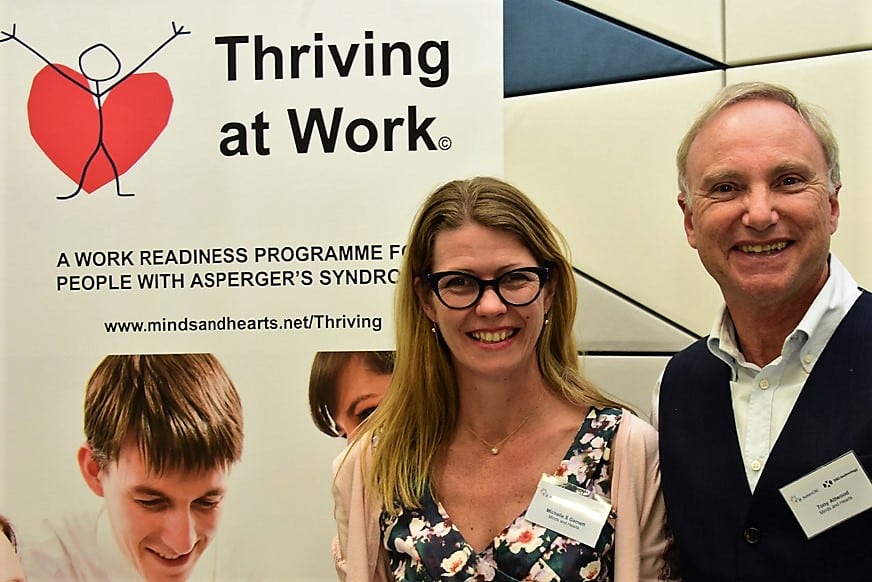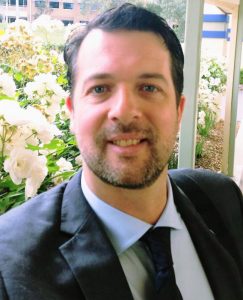19 October 2017 – THE THRIVING at Work programme, developed in Australia, is a comprehensive package that includes materials for employers/leaders, managers, team members and employees with Asperger’s Syndrome.
Professor Tony Attwood and Dr Michelle Garnett designed it to support new employees with AS (Asperger’s Syndrome/ASD level 1) within numerous settings.
In New Zealand this employment process is commonly known as induction and it is also known as onboarding.
It assists the employing organisation to create a culture of inclusiveness, i.e. changing the culture of the organisation to include, enjoy and appreciate autistic employees.

THRIVING: Professor Tony Attwood and Dr Michelle Garnett
Michelle and Tony refined the programme with Jay Hobbs from Specialisterne Australia over a 12-month period and the content has evolved with suggestions from individuals with AS who participated in Thriving at Work.

Jay Hobbs
The packages include resources to de-mystify and de-bunk myths about autism, understand both the strengths and the challenges in employing, managing and working with people with AS, and provide both general ideas and strategies that work, as well as strategies individualised to each employee.
Both the management and employee components include the follow-up support that we know from both research and clinical experience is so important to creating success.
The process can be individualised, but initially the leader/employer could learn about how to support people with AS at work via the leader/employer modules.
The process from there could be adapted to need, but within a large organisation involves educating a human resources person/psychologist to become accredited in the Thriving programme, and to lead the onboarding and maintenance process with management, staff and the employees with autism.
He or she would provide initial assessment for each autistic employee, take them through the five sessions, resulting in an individualised plan for each.
He or she would also train the managers and assist managers to train staff.
Key support people would be identified within the team and skilled up in the individual profile of an employee with AS, including ideas and strategies about how to accommodate and assist.
Plans are made for trouble-shooting and ongoing support for both autistic employees and their team members and managers.
Tony, Michelle and Jay have run the Thriving at Work programme in a variety of workplaces to support employers to better understand AS and help individuals on the spectrum to transition to their new work environment.
- Find out more about the Thriving at Work programme
- Professor Tony Attwood is an internationally recognised clinical psychologist, educator and
Tony Attwood
author. His book Asperger’s Syndrome: A Guide for Parents and Professionals, is an international best seller and seminal in the field.
- Dr Michelle Garnett is a clinical psychologist and founder and director of Minds & Hearts, a clinic specialising in Autism Spectrum Disorders. She trains clinical registrars across four universities and has co-authored three books with Tony on autism.
- Jay Hobbs is the Assessment and Support Manager based in Brisbane at the Cooperative Research Centre for Living with Autism. Jay has worked with people on the autism spectrum and their families for over 15 years in both Australia and the UK. Jay led the robotics social clubs research with the Autism CRC, has a Master of Professional Psychology and currently works under the supervision of Dr Michelle Garnett and Prof Tony Attwood. Jay has worked on large employment programmes with corporate clients such as Hewlett Packard, SAP and SunPork Farms. Jay is passionate about working with people on the spectrum particularly in the areas of psychology, education and employment.



